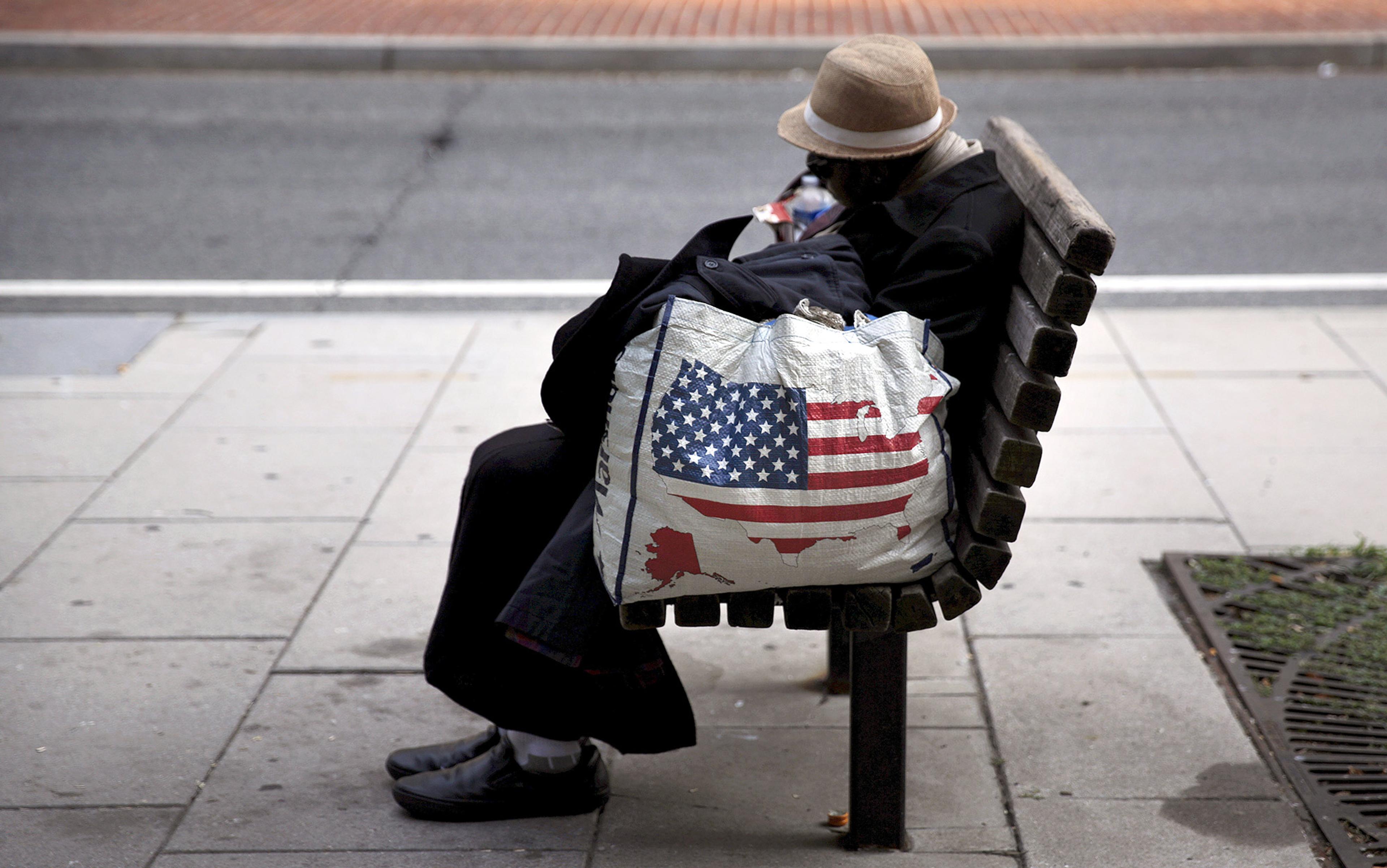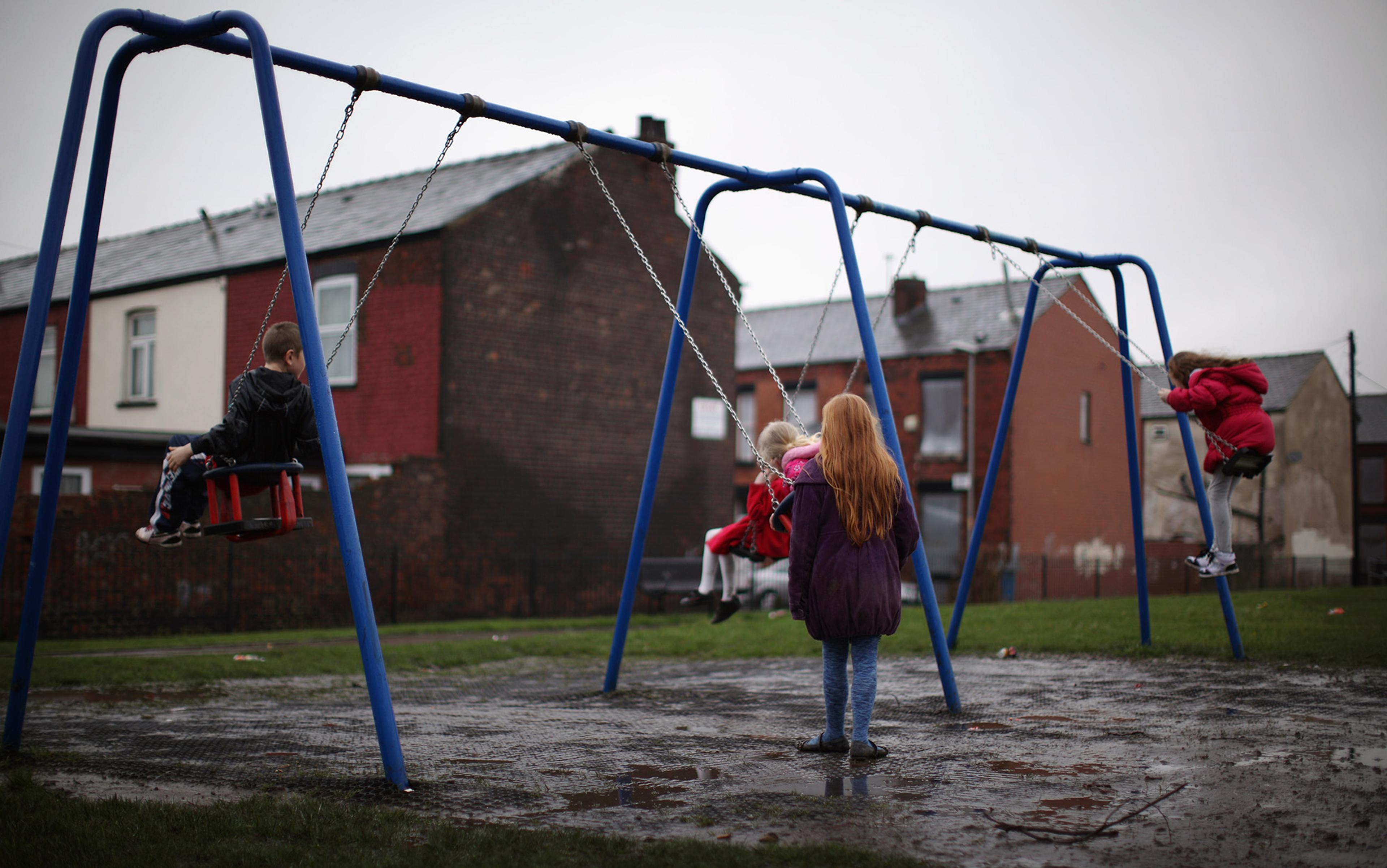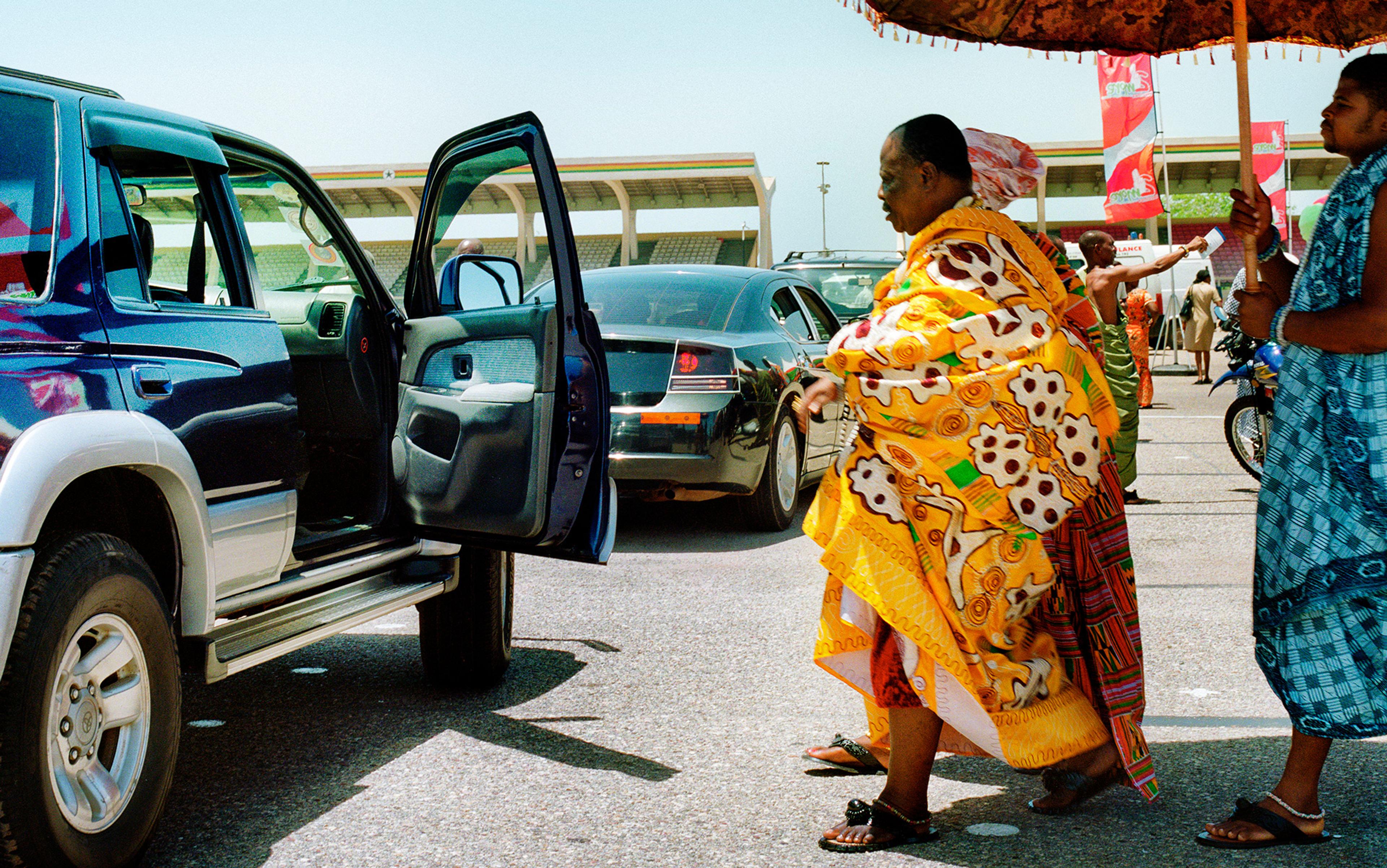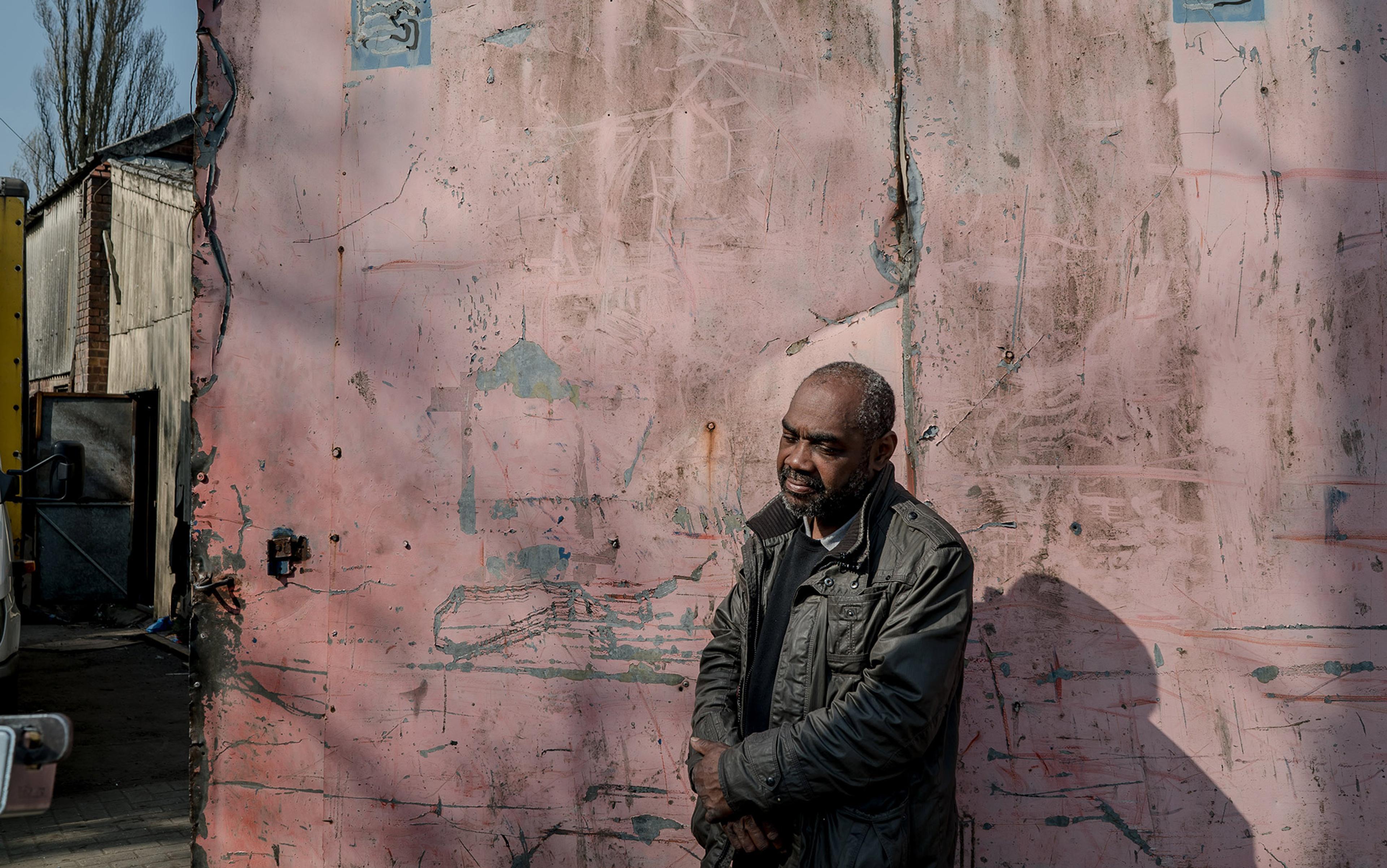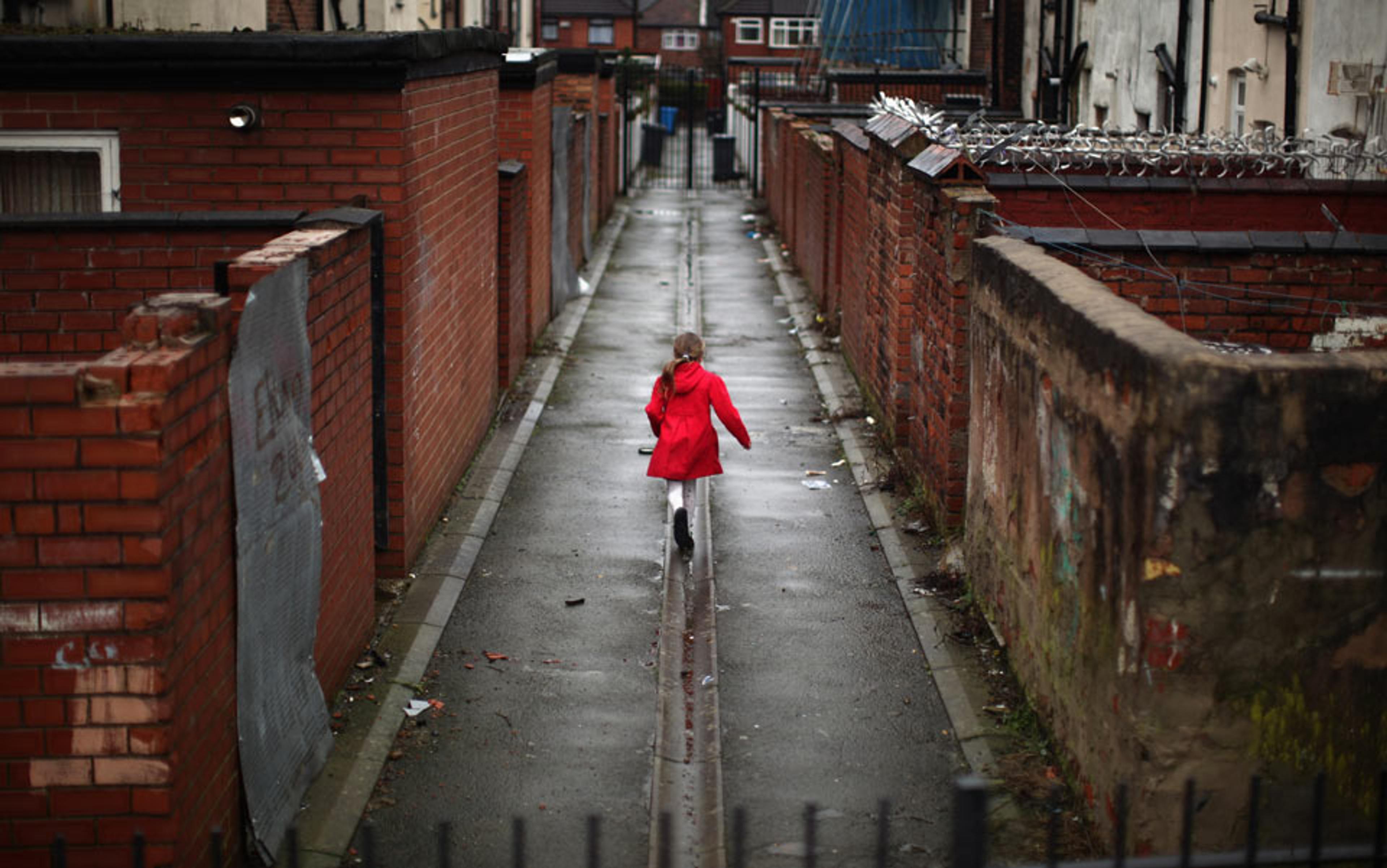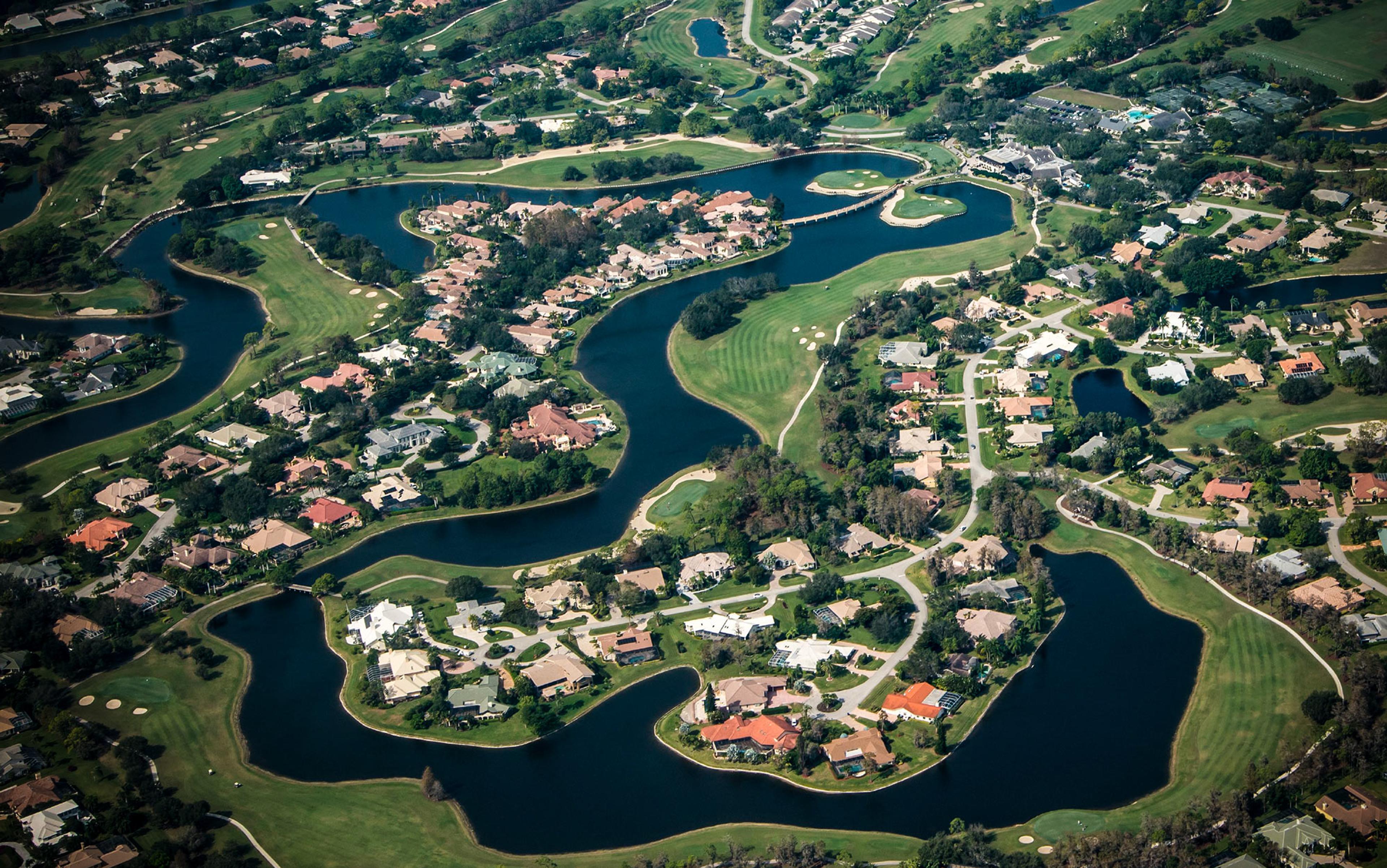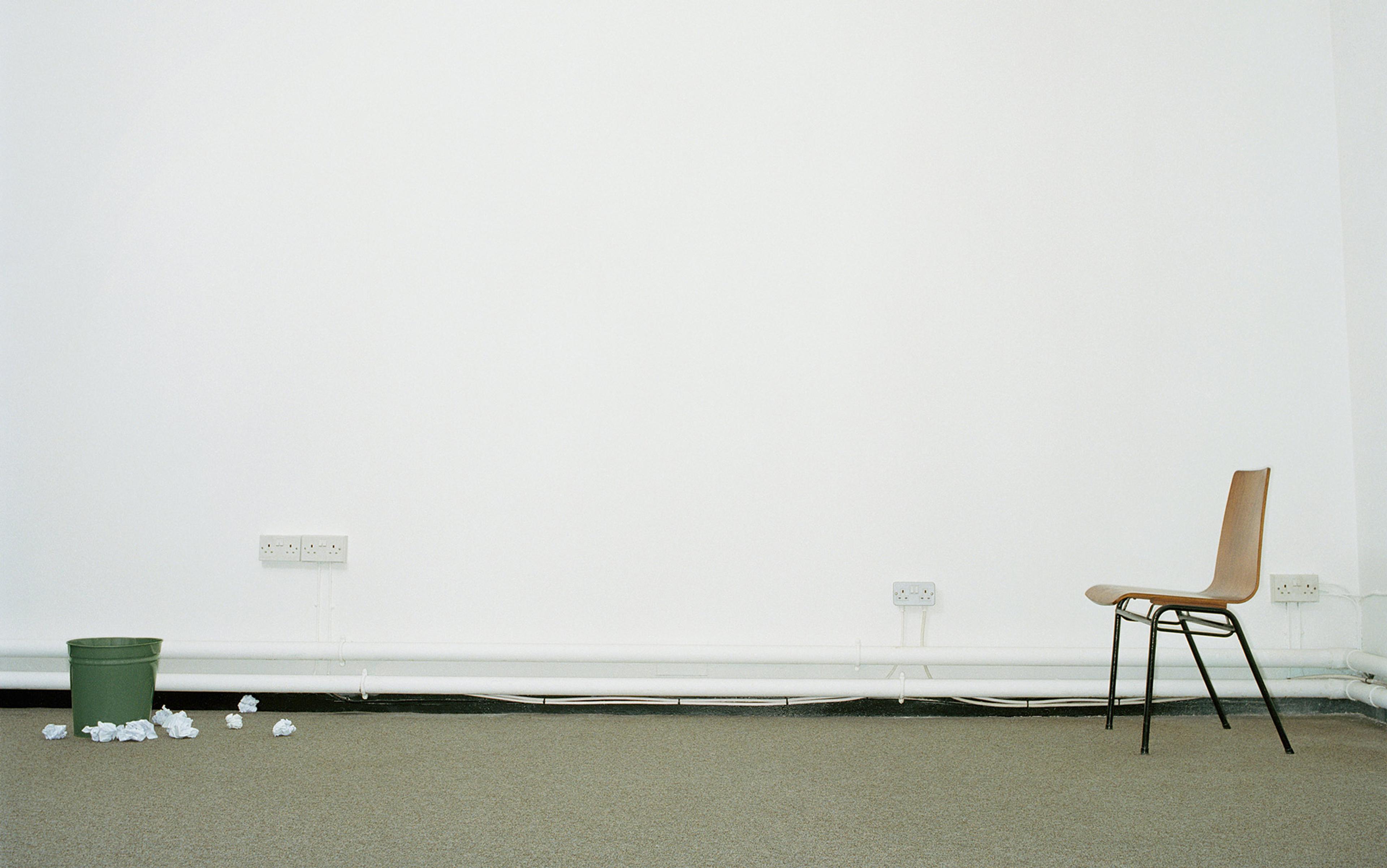At the end of 2017, the Washington Metropolitan Area Transit Authority launched a new ad campaign. The Authority wasn’t selling anything. It was asking, on behalf of its bus drivers, for something; something that liberal societies need in order to flourish, that underpins social equality, and that today, is in short supply: respect.
In each of the ads, a photo of a bus driver was accompanied by a biographical sketch, eg: ‘Mom. Friend. Metrobus driver’ – followed by a personal plea: ‘I hope you’ll see all the things I am and respect me, like I respect you.’
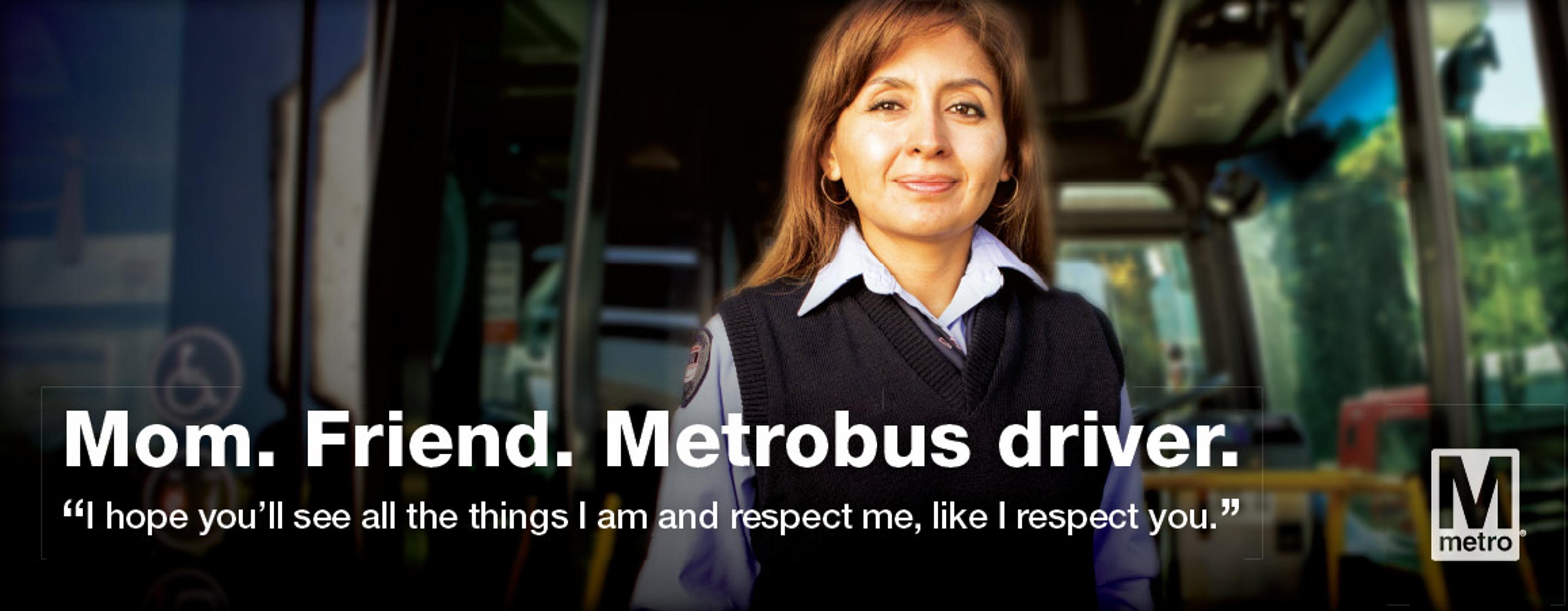
Courtesy WMATA
The ads were a reaction to a sharp increase in the number of drivers subjected to verbal and physical abuse in 2017. Drivers were punched, spat on, and screamed at. In one case, a woman threw a cup of her own urine (collected during the journey) at a driver. Employee injuries rose by around 50 per cent in the summer of 2017, compared with the previous year.
Practical responses include more robust protective screens, sealing drivers off from passengers, and an increased police presence. But this ad campaign (and others like it in London) tried to tackle the problem at its source: the relationship between passengers and drivers. It does so by appealing to a certain kind of equality – equality not of resources, but of respect. As a spokeperson for the Authority told me, their goal was ‘to humanise our frontline employees so that the customers understand these are their neighbours, family and friends, people with whom they have a lot in common’.
The challenges faced by bus drivers in big cities are just one example of a loss of mutual respect, which reflects and reinforces trends towards a more polarised, unequal and tribalised society.
Contemporary concerns over inequality are typically framed in economic terms. Income and wealth provide convenient gauges of the growing distance between the affluent and the rest. But there is a much deeper kind of inequality, caused not by a lack of resources, but by a lack of respect. You might be much richer or poorer than I am. But if we treat each other with mutual respect, we are, relationally speaking, equal.
Societies that are equal in terms of relations are those in which there is mutual respect, where – as the philosopher Philip Pettit put it in 2010, alluding to a line by John Milton – ‘free persons … can speak their minds, walk tall among their fellows, and look each other squarely in the eye’.
Look each other squarely in the eye. That’s the heart of it. If I lower my eyes out of deference, I render myself your inferior. Black slaves who dared look their owners in the eye could be whipped for ‘insolence’. If we consider ourselves morally worthier than someone else, we are said to ‘look down’ on them; and they likely notice. If we simply fail to look a person in the eye – my bus driver perhaps – the danger is we miss their basic humanity, their essential moral sameness, the basic equality that exists between us. And then I might throw an insult, or something much worse, at them.
We are equals when we meet each other’s gaze. This requires and reflects mutual respect, and is why being ‘disrespected’ is socially painful. When in 2016 the US presidential candidate Hillary Clinton described half of Donald Trump’s supporters as ‘a basket of deplorables’, the political damage resulted from her apparent lack of respect for millions of her fellow citizens. Never mind that she was quite specific about the group she was referring to (Trump’s ‘racist, sexist, homophobic, xenophobic, Islamophobic’ supporters), or that the phrase was taken out of context before being bounced around every social media echo chamber. Her words confirmed a sense among many working-class white Americans that the professional elite looks down on them. Meanwhile, Trump seemed to look them squarely in the eye.
The Indian economist and philosopher Amartya Sen observed that everybody is in favour of some kind of equality – the real question is, ‘Equality of What?’ (1979). Relational equality, based on equality of respect, is distinct from two other kinds of equality: basic equality based on equality of legal rights; and material equality, based on equality of resources.
Basic equality, sometimes referred to as deep or moral equality, underpins human rights, which are, as a matter of principle, universal and unconditional. In his book One Another’s Equals (2017), the New Zealand legal philosopher Jeremy Waldron draws on an Anglican prayer for ‘all sorts and conditions of men’, to emphasise basic equality. He argues that ‘we believe there is just one sortal status – one kind of human being’, even if people exist under different conditions, for example in terms of their economic situation. To treat a person differently because they are a woman, or have darker skin, negates this principle.
But basic equality does not ensure or demand relational equality based on respect. I can defend the right of a criminal to a fair trial, without respecting him as my equal in any broader sense. Basic equality, then, generates a rather thin, legalistic egalitarianism.
Material equality, by contrast, is focused on the second part of Waldron’s prayer, the ‘conditions’ of men. The currency this time is resources, typically economic ones. Egalitarian arguments are here focused on the justification for reallocating resources between person A and person B. But no account is taken of the relationship between person A and person B. In contrast to both basic equality and material equality, relational equality is created between people, in our relationships with each other. It is generated ‘in the attitudes people sustain toward each other in the thick of daily life’, to borrow a phrase from the late Marxist political philosopher Gerald Cohen’s book If You’re an Egalitarian, How Come You’re So Rich? (2001).
Relational equality sits most comfortably within the philosophical tradition of civic republicanism, centred on notions of social non-domination and civic equality. This tradition restores a pre-liberal conception of freedom as a status of independence, free from the arbitrary will of others. Without this kind of independence, standing as citizens in a community of equals, true freedom cannot be achieved. Unequal relationships undermine respect, both for oneself and for others.
Self-respect and mutual respect are tightly intertwined. If others do not respect me, it is hard to respect myself; and vice versa. This is why the American philosopher John Rawls listed ‘self-respect’ as one of the basic goods in A Theory of Justice (1971). Generating self-respect as a person of colour in a racist society, in which I am not respected by many of my fellows, is hard – but essential. Relational equality requires, then, a combination of independence (for self-respect) and inclusion (for mutual respect).
Deep poverty can undermine self-respect, by denying access to goods necessary to avoid stigma
While the three variants of equality – basic, material and relational – are distinct, they often reinforce each other. Relational equality is usually a necessary precursor, for example, to laws ensuring equal rights. When black Americans were seen as intrinsically inferior, held in a fundamentally different relation, it was easy for whites to deny them basic rights. Once people begin to relate to each other as equals, legal rights usually follow close behind. Support for same-sex marriage, for example, rose most quickly among Americans with gay friends or family members. In her book Loving: Interracial Intimacy in America and the Threat to White Supremacy (2017), the American legal scholar Sheryll Cashin shows how abstract racist attitudes are transformed by real, flesh-and-blood relationships. Relational equality fosters equality of other kinds.
In particular, there might be a connection between relational equality and the redistribution necessary for greater material equality. Resistance to higher taxes and transfers is likely to be weaker when there is mutual respect between the net contributors and the net beneficiaries. Empathy is a better foundation for social justice than sympathy, as Wes Moore, head of the poverty-fighting organisation Robin Hood in New York, puts it.
Deep poverty can also undermine self-respect, by denying access to goods necessary to avoid stigma, as Adam Smith argued in The Wealth of Nations (1776) with the example of the linen shirt, without which ‘a creditable day-labourer would be ashamed to appear in public’.
But redistribution can also undermine relational equality, by inducing dependency or encouraging paternalistic attitudes towards the poor. This risk can be heightened not only by the fact of state support, but by the way it is provided. A policy might lessen income poverty but increase stigma or alienation. In her essay ‘What Is the Point of Equality? (1999), the American philosopher Elizabeth Anderson provides an extreme example in the form of a letter sent by an imagined ‘State Equality Agency’, along with a cheque:
How sad that you are so repulsive to people around you that no one wants to be your friend or lifetime companion. We won’t make it up to you by being your friend or your marriage partner – we have our own freedom of association to exercise – but you can console yourself in your miserable loneliness by consuming these material goods which we, the beautiful and charming ones, will provide. And who knows? Maybe you won’t be such a loser once potential dates see how rich you are.
Anderson does not think that such letters will be sent anytime soon. But the warning is clear. Policies designed to lessen resource inequality have to be designed and implemented in ways that are sensitive to their potential impact on respect, and therefore on relational equality.
At a certain point, the equalisation of resources necessary for greater material equality can undermine the spirit of enterprise and independence that garners self-respect and the respect of others. It is striking, for instance, that US workers receiving an income boost from in-work tax credits become more likely to cast a vote, but not those who receive equivalent assistance through out-of-work benefits.
Respect cannot be commanded vertically from above. It has to be generated horizontally, daily, by each of us
Relational equality differs from both basic and material inequality in one fundamental way: it is not, by and large, generated through public policy. Basic and material equality can both be satisfactorily pursued using the instruments of state power, written into a constitution or a tax code. Inevitably these tend to be more satisfactory to social engineers than to social conservatives.
By contrast, relational equality is not a product of clever policymakers, but of ourselves. This was a lesson lost on Tony Blair, who as UK prime minister launched a ‘Respect Agenda’ in 2005. The key policy was the introduction of a civil Anti-Social Behaviour Order, which allowed restrictions to be placed on individuals engaged in drunkenness or verbal intimidation without having to resort to criminal courts. These ‘ASBOs’ quickly became badges of pride on the toughest public housing estates, and were remodelled in 2014. Respect cannot be commanded vertically from above. It has to be generated horizontally, in daily life, by each one of us.
Policy does matter for the pursuit of relational equality, but largely indirectly, by creating the conditions under which it is most likely to flourish. Egalitarians focused on resources alone will be indifferent to the means by which an income distribution is produced: all that matters is its shape. By contrast, egalitarians focused on relational equality care a great deal not only about the resources that people have, but how they came by them, and specifically whether the ways in which resources are distributed create or destroy mutual and self-respect.
This means that the pursuit of relational equality ought to appeal as much to many on the political Right as on the political Left. It is a non-partisan egalitarianism. This does not mean that liberals and progressives ought not to care about relational equality; simply that they should not be alone in doing so.
The trends towards growing material inequality in many advanced economies are well established, and well known. But relational inequality seems also to be increasing, especially across class lines. It is likely that some of the features of economic inequality, in particular spatial segregation, are contributing to the corrosion of respect. But so too is the ideology that is used to justify it: meritocracy.
When he coined the phrase ‘meritocracy’ 60 years ago, the British sociologist Michael Young was worried that people would not take it seriously, since it jimmied together a word with a Latin root (mereō) and one with a Greek root (κάτος, or kratos). (This was the kind of thing mid-20th-century British intellectuals worried about.) As it turns out, the problem was that the term meritocracy was taken very seriously indeed – in precisely the opposite way Young intended.
The purpose of Young’s dystopian novel The Rise of the Meritocracy (1958) was to warn of the dark side of meritocracy. The book depicts a future society in which a social revolution has swept away power structures based on inheritance, and replaced them with a society based entirely on ‘merit’: IQ and effort, in which there is ‘rule not so much by the people as by the cleverest people; not an aristocracy of birth, not a plutocracy of wealth, but a true meritocracy of talent’. The meritocratic society described by Young develops some fatal flaws. One, anticipated by Kurt Vonnegut’s novel Player Piano (1952), is by now all too familiar: the clever people make machines that put the less clever people out of work.
But the deeper problem in Young’s meritocracy is that the widening gap between rich and poor is seen by those in power to be wholly justified on moral grounds. As the novel’s narrator explains:
Now that people are classified by ability, the gap between the classes has inevitably grown wider. The upper classes are […] no longer weakened by self-doubt and self-criticism. Today the eminent know that success is just reward for their own capacity, for their own efforts, and for their own undeniable achievements.
Meritocracy thus justifies and amplifies material inequality, by weakening the foundation of mutual respect needed for the funding of public goods, or support for greater resource-redistribution. The ideology of meritocracy is the connective tissue between material inequality and relational inequality.
Another problem in Young’s imagined meritocracy is a loss of self-respect among the poor. These are the people who have had a chance to show their skills, but have been found to simply lack them. This has predictable psychological effects, as the narrator explains:
[I]f they have been labelled ‘dunce’ repeatedly they cannot any longer pretend; their image of themselves is more nearly a true, unflattering, reflection. Are they not bound to recognise that they have an inferior status – not as in the past because they were denied opportunity; but because they are inferior? For the first time in human history the inferior man has no ready buttress for his self-regard.
Life in a meritocracy is psychologically comfortable for those who possess whatever particular kind of merit is valued. But it is hard for those who do not. In an explicitly non-meritocratic hierarchy, these pains are fewer; the pauper knows he can never be a prince. But when everyone can, at least in theory, be a CEO or a president or rich, your failure to do so must be your own fault.
Little surprise then that there is a creeping epidemic of stress and fatalism about some groups of Americans, especially less-educated, low-income whites, which my colleague Carol Graham at the Brookings Institution in Washington, DC attributes in part to the psychological damage of being less successful in a meritocratic, success-oriented society. The rise of ‘deaths of despair’, from drugs, alcohol and suicide, provide some grim statistical support for Young’s prediction.
The economic gap becomes an empathy gap, which becomes a respect gap
‘There is a lack of agency here,’ writes the venture capitalist J D Vance in his bestselling memoir of poor Appalachia, Hillbilly Elegy (2016), ‘a feeling that you have little control over your life and a willingness to blame everyone but yourself.’ Drug use is often a vivid symptom, an external marker of internal malaise. It is striking that opioids are the kind of drugs that cause addicts to retreat into themselves, to withdraw. In 2015, deaths from drug overdoses numbered 52,000 people, which is more than died of AIDS at its height in 1995, as Andrew Sullivan pointed out in New York magazine.
The loss of self-respect among some of meritocracy’s losers is accompanied and amplified by a loss of respect between classes – the winners and losers – too. Those who are economically productive and successful often do not see a broken labour market, which, after all, continues to work for them. They see broken people, making bad choices, who are less worthy of respect. Or they might simply be unable to imagine themselves in their shoes. The economic gap becomes an empathy gap, which becomes a respect gap. As Waldron observes: ‘Holding on to a conviction about equal dignity may be harder for us as the population grows into “two nations” – rich and poor – and as people’s ways of life become not just unfamiliar but unintelligible to each other. (“Who knows how these people live?”)’
When economic inequality evolves into class separation – by neighbourhood, school, workplace, lifestyle, culture – the seeds of destruction for relational inequality are planted. Rather than looking the less fortunate ‘squarely in the eye’, the elite might instead come to look at them down their nose: ‘deplorables’ (Hillary Clinton), ‘they cling to guns or religion’ (Barack Obama, 2008), an ‘underclass’ (Bill Clinton, 1996) characterised by fecklessness, irresponsibility and idleness – not worthy, in fact, of our respect.
Using word-association tests, researchers from Kansas State and Rice universities have attempted to gauge how Americans view the poor. Their average respondent described poor people as 39 per cent more ‘unpleasant’, 95 per cent more ‘unmotivated’, and twice as ‘dirty’ as middle-class Americans. As John A Powell, the director of the Haas Institute for a Fair and Inclusive Society, and Arthur Brooks, president of the American Enterprise Institute, wrote in 2017: ‘[I]t is reasonable to conclude that middle-class and wealthy Americans’ social distance from people in poverty exists in a mutually reinforcing cycle with the contempt they feel towards them.’
According to a poll by the Los Angeles Times in 2016, most of those who are not poor themselves think that welfare benefits ‘make poor people dependent and encourage them to stay poor’ (61 per cent) rather than giving ‘poor people a chance to stand on their own two feet and get started again’ (31 per cent). Meanwhile, those in poverty themselves were divided equally on the question (41 per cent). Most poor Americans (71 per cent) think it is ‘very hard for poor people to find work’, compared with just 25 per cent who think ‘there are plenty of jobs available for poor people/anyone who is willing to work’.
The less successful are now returning the favour. Respect for ‘the elite’ among ordinary Americans has declined sharply in recent decades, as work by scholars such as Joan Williams and Arlie Russell Hochschild demonstrates. This has potentially profound political consequences, including the outcome of the 2016 US presidential election. One of the reasons that Trump won is that working-class and middle-class white Americans felt that he was on their side, and was not condescending to them. In short, that he showed them a little respect.
If respect is the key to relational equality, the question is what generates it? What makes me respect you, or respect myself, or earn your respect? And how can it be restored? The clearest one-word answer to all of these questions is this: work.
The dignity and independence associated with work contrasts both with idle aristocracy and with the subjection of slavery. Work provides structure, purpose and identity – and by extension, community and inclusion. Historically, the exclusion of certain groups from paid work – women and black Americans especially – was a vital element of racist and sexist institutions. The pain of such exclusion is proof of the value of participation in the labour market.
At the same time, the work that was done unpaid, largely by women, has been traditionally undervalued. Other kinds of work can and should generate respect and relational equality: parenting, volunteering, studying. Indeed these might become and need to become more important. Importantly, however, these all involve work. There is a reason even the act of giving birth is described as ‘labour’, let alone the next two decades of parenting.
Disagreement is one thing; disrespect is quite another
Looking forward, the big question is whether the labour market is the right place to look first for the activities that generate self-respect and mutual respect, or whether deep economic changes, especially related to automation, mean that respect will increasingly have to be earned through other routes. Even if a universal basic income never arrives, perhaps a version of the late British economist Tony Atkinson’s proposal for a ‘participation income’ will.
Atkinson agrees with Rawls that ‘those who surf all day off Malibu must find a way to support themselves and would not be entitled to public funds’. He believed that both morally and politically, reciprocity is important. But anyone ‘making a social contribution’ should receive state assistance, including, for those of working age, through ‘education, training or an active job search, by home care for infant children or frail elderly people, or by regular voluntary work in a recognised association’.
Whether we need to reduce our reliance on the labour market, both as a means of resource distribution and a generator of respect, will depend in large part on broader economic forces that are hard to predict. The worst of all worlds would be to cling to paid work as the solution, while unstoppable economic forces render paid work either unavailable or undignified for more of our citizens.
We need to reduce growing economic gaps, and especially the physical segregation of social classes. But our deeper challenge is to restore respect, especially for those who are very different to us, or who have very different views to us. Disagreement is one thing; disrespect is quite another. If we want a better society, we need to restore some of the respect that has been lost. This is a task for each one of us, in the thick of our everyday life. Perhaps we can make a start on the bus.
This essay draws on the Brookings paper ‘A Little Respect: Can We Restore Relational Equality?’ Support from the William T Grant Foundation is gratefully acknowledged.
